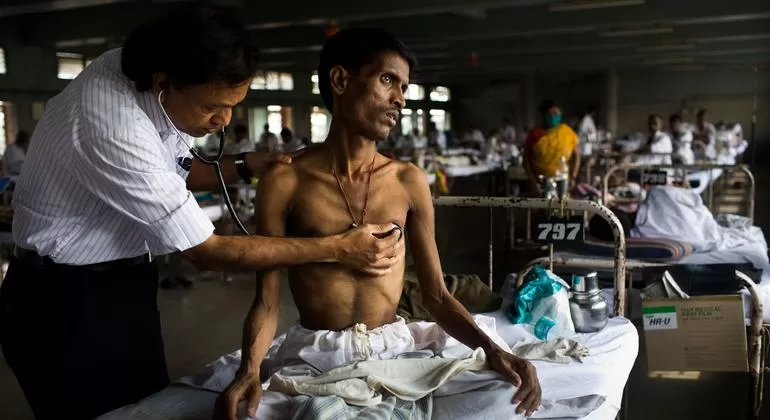Gandhinagar: As part of the ‘100 Days TB Eradication Campaign,’ a special programme was organised on Friday in Gandhinagar under the chairmanship of Gujarat Health Minister Rushikesh Patel. The event aimed to raise awareness and encourage those battling the disease, bringing together ‘TB-cured patients’, ‘TB patients’, and ‘TB champions’.
During the seminar, Patel underscored the Gujarat Health Department’s significant efforts in combating tuberculosis (TB). He credited the state’s proactive initiatives for aiding the recovery of numerous patients.
The minister noted that TB was once considered a “royal disease” that was difficult to diagnose and treat. However, with the implementation of initiatives like the ‘National Tuberculosis Eradication Program’, overcoming the disease has become a tangible reality.
He assured the public that TB diagnosis and treatment are now available free of cost at all government health centres across Gujarat. “TB is neither a royal disease nor an insurmountable one; it is entirely curable,” Patel asserted. He congratulated those who have successfully recovered and urged all TB patients to complete their six-month treatment regimen for full recovery.
Emphasising the role of public cooperation alongside government initiatives, Patel highlighted the support provided to TB patients through the Nikshay Poshan Yojana. Under this scheme, financial assistance of Rs 1,000 per month is given to patients until their treatment is completed. More than 7.68 lakh TB patients in Gujarat have benefited from the scheme, with over Rs 246 crore disbursed through Direct Benefit Transfer (DBT).
Gujarat has been at the forefront of TB control measures. In 1993, it was among the initial states to pilot the Revised National TB Control Programme (RNTCP), which introduced the DOTS (Directly Observed Treatment, Short-course) strategy. This approach emphasised standardised treatment regimens, direct observation of therapy, and systematic monitoring and reporting. The early adoption of RNTCP laid the foundation for structured TB control measures in the state.
Despite ongoing efforts, recent data indicates a concerning rise in TB cases in Gujarat. In 2020, the state reported 173 TB patients per lakh population, which increased to 213 per lakh by 2022—a 17 per cent rise over two years. The total number of reported TB cases grew from 1,20,560 in 2020 to 1,51,912 in 2022.
Additionally, between 2019 and June 2024, Gujarat recorded over 5,000 TB-related deaths annually, averaging approximately 15 deaths per day.
Disclaimer: This article is based on official reports and statements from government sources. While efforts are being made to combat TB, readers are advised to consult medical professionals for accurate health information and treatment guidance.












